The last ever Newsnight Index seat forecastpublished at 22:31 BST 8 May 2015
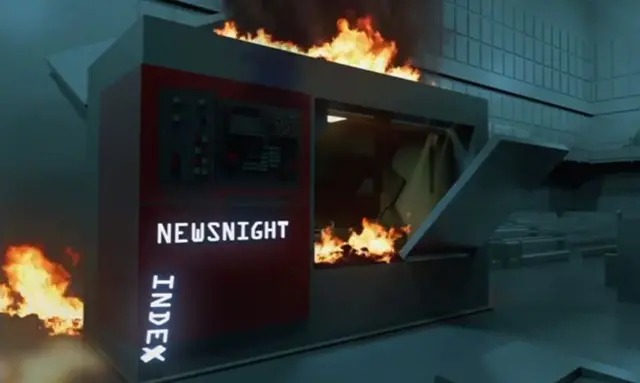
We think it will sum up how you're feeling about the polls right now.
Newsnight Live is your one stop shop for elections analysis from the Newsnight team, updated throughout the day
Expert commentary and analysis from Newsnight's team of reporters and producers on the latest election fallout

We think it will sum up how you're feeling about the polls right now.
Time for a montage
David Cameron makes the long nighttime drive back to Downing Street, to the soundtrack of the BBC's Election 2015. Watch it here, external
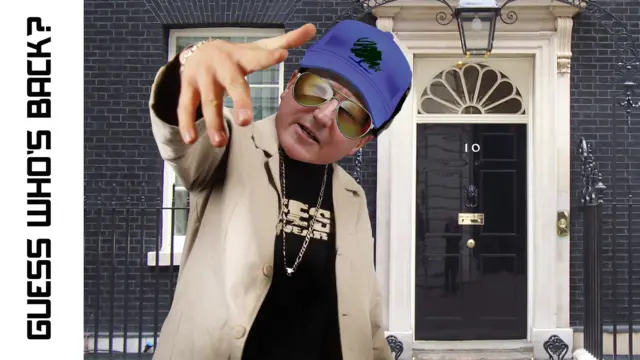
 Alex Campbell
Alex Campbell
Newsnight producer
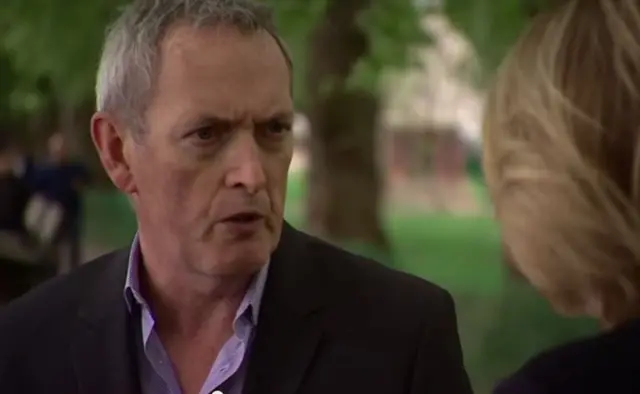
Labour members should not be surprised by the party’s election meltdown and the party must now abandon its “socialist” policies, a former cabinet minister has told Newsnight.
In an interview with Chief Correspondent Laura Kuenssberg, Lord John Hutton criticised the party’s “tribal politics” and called for a complete rethink of its approach in order to mount a recovery in 2020.
He said: “Nobody in the Labour party should be surprised by the result.
“One thing is pretty self-evident now: the policy offer we made in this election really has got very few takers. It's a dwindling appeal, not even our core vote is comfortable with it any longer.
“We've got to be much more progressive in our politics and much less tribal.
Lord Hutton called on candidates in the imminent leadership election to focus on the “radical centre ground”, adding: “There is a dwindling appetite for the old school socialist menu we had on offer and we've really got to be grown up, take a long, hard look at ourselves and ask what sort of party we want to be.
“We're back to where we were almost 30 years ago...in the 80s...most of us thought we'd never be there again, that we'd learned those lessons. Apparently not.”
Part of the interview will air on the programme at 22:30, and the full interview by Laura Kuenssberg and producer Jess Brammar is on Newsnight’s YouTube channel here, external.
 Marc Williams
Marc Williams
Newsnight Election Producer
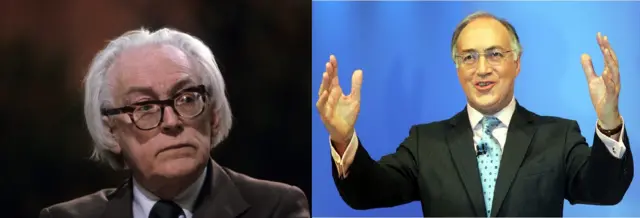
We knew that it was likely that more than one party leader would have to fall on their swords, and so it came to pass. It's hard to see how in the forseeable future we will face another occasion when three main party leaders resign on the same day.
To mark the moment, here is a selection of concession speeches from the main party leaders since 1983. The Michael Foot one, in particular, is worth watching to spot similarities in theme between it and what Ed Miliband said today. The Kinnock one is much more bullish and in keeping with a man who clearly felt he had unfinished business with the electorate.
1983: Michael Foot, external
1987: Neil Kinnock, external
1997: John Major, external
2001: William Hague, external
2005: Michael Howard, external
Excuse the poor picture and sound quality for some of them.
Secrets of the spiral notebook
 Ian Katz
Ian Katz
Newsnight Editor
 Image source, alibaba.com
Image source, alibaba.comMaybe a few of these would have helped...
We know the entire polling industry - and frankly most of the media, including this programme - woke up this morning with whole factory farmfulls of eggs on our collective faces. With the notable exception of the oracular John Curtice and his exit poll team, we got it spectacularly wrong.
My colleague Evan Davis has already apologised this morning to Treasury Minister David Gauke for ridiculing him when he insisted on talking about how the Tories were confident of getting a majority on our show on Tuesday. In truth we probably owe apologies to several other Tory politicians who we accused of delusional thinking when they launched into their own speeches about securing an actual majority.
But did the politicians themselves do any better at predicting today's result? This morning I bumped into one senior Tory and asked him.
He grinned and pulled out an A4 spiral notebook from his bag. "I wrote this list on Saturday," he said, pointing to a page with three columns of seats written in neat handwriting. One for seats he thought the Tories would hold, one for those he thought they'd lose and one for those he thought they might pick up.
Scrawled in a circle in one corner of the page was the total tally: 305. A second page showed a similar reckoning for Lib Dem seats. The number circled there was 15 and he pointed to a half dozen or so seats in the Lib Dem hold column which had been struck through: among them Lewes and David Laws's Yoevil.
The Tory figure said his predictions were based on reports from their campaigners on the ground, rather than polling. They were wrong too, but only by 26. By comparison the central Conservative forecast of the high-tech, Nate Silver-endorsed Newsnight Index was a gulp-inducing 50 out. Maybe we need to invest in some spiral notebooks for next time.
A bit more like the rest of the country. But only a bit.
 Rachel Jupp
Rachel Jupp
Newsnight Deputy Editor
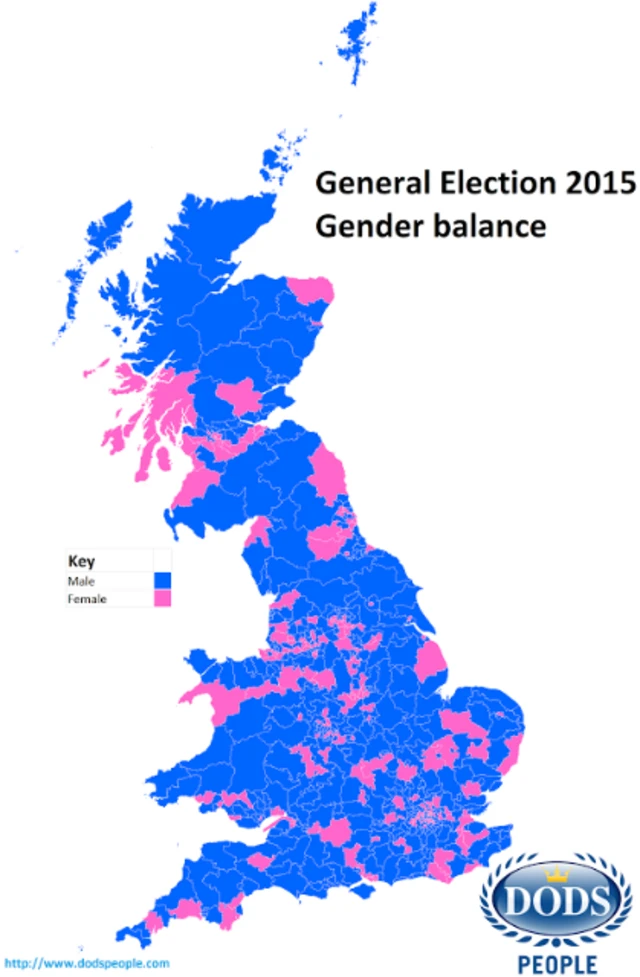 Image source, Source: Dods
Image source, Source: DodsGender balance of newly elected MPs
We're beginning to get a sense of what the green benches will look like, come May 18th when the new Parliament is summoned. There will be a record 191 women sitting on them. 42 won't be white and fewer will be privately educated. UCL have being doing this research, external and there's a lot more interesting detail here, external from the Guardian.
The 56 MPs from the SNP are likely to stand out. By my count 20 are women and they include Kirsten Oswald, who only joined the party last year, and high profile Scottish business woman Tasmina Ahmed-Sheikh. There's a good break from the Scotsman here., external
Duncan Weldon, economics correspondent, tweets
A lot of purple
 Rachel Jupp
Rachel Jupp
Newsnight Deputy Editor
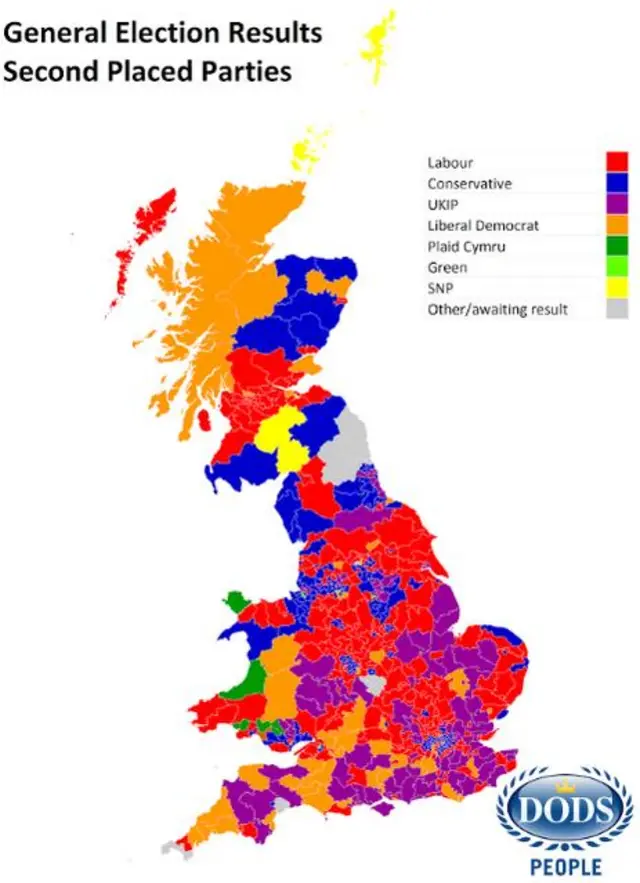 Image source, Source: Dods
Image source, Source: DodsSecond placed parties, 2015 General Election
This is a really interesting map that I spotted from Dods, via @JoeMurphyLondon, external. Its the success of UKIP in seats from the North to the South West that stands out. They were second in 107 seats with 12% of the national vote. And as the Staggers, external points out, that's a problem for Labour as much as the Conservatives. In seats like Oldham West and Royton, South Shields and Rotherham UKIP won between 20% and 30% of the vote.
Alex Campbell, Newsnight producer, tweets
Can it?
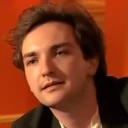 Lewis Goodall
Lewis Goodall
Newsnight producer
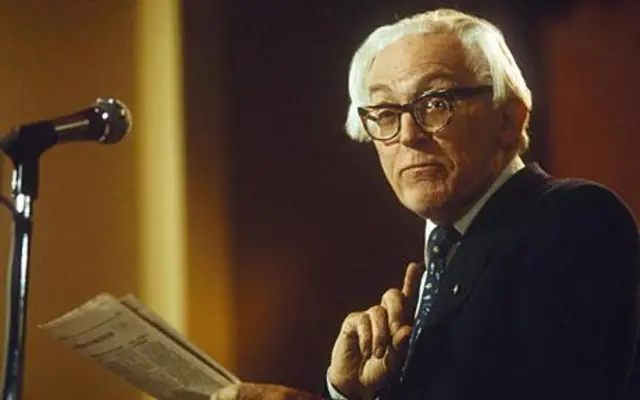
The year 1983 is being cited a lot today, the odd Labourite consoling themselves that at least last night's performance wasn't as bad as that famous drubbing.
True Labour has more seats than it did in that nadir year, 232 today compared to 209 then.
But then there was a very clear explanation: the SDP. Broadly, the left of centre vote was split down the middle delivering Margaret Thatcher a bumper majority. Labour survived as the second party and over the coming decades managed to claw back much of that lost support.
Yes the SNP has badly affected Labour's fortunes in Scotland, reducing the Labour tally substantially. But Labour has no such excuse in England. There, the party simply badly trailed the Conservatives in seat after seat, the voters finding the party and its prospectus unpalatable.
The headline numbers are better than the past but arguably the questions the party has to ask about itself are even graver than then.
P.S. Of course, Labour MPs can at least console themselves that they don't have to go as far back as the Lib Dems do to find a comparably lamentable performance. The Liberals/Lib Dems haven't done this badly since Jeremy Thorpe led the party to win a mere six seats in 1970, forty-five years ago,
Emily Maitlis, presenter, tweets
David Grossman tweets
Laura Kuenssberg, Chief Correspondent, tweets
Beneath the surface they are getting stronger
 Ed Brown
Ed Brown
Newsnight producer
UKIP now have fewer MPs than they did before the election.
But there is a silver lining.
After the 2010 election, UKIP came first in 0 constituencies, second in 0 constituencies, and third in 4.
This election they came first in 1 constituency, second in 120 constituencies, third in 364 constituencies.
That means in 120 constituencies, UKIP can now credibly claim to be the tactical vote to keep x party out. Don't be surprised if some of those seconds turn into firsts next time around.
Not quite who you think
 Chris Cook
Chris Cook
Newsnight Policy Editor
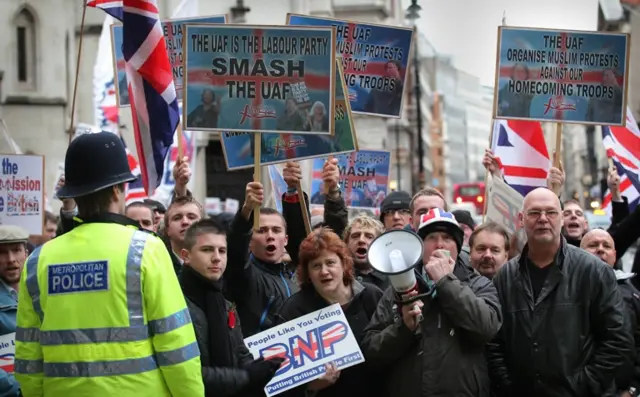 Image source, Getty
Image source, GettyA party that came in fifth in 2010, winning more than 500,000 votes for 338 candidates. In 2015, the British National Party won 1,667 votes. Soundly beaten by the Monster Raving Loony Party.
 Alex Campbell
Alex Campbell
Newsnight producer
Samantha Cameron appears to be so pleased with the night's results that she's decided to wear them.
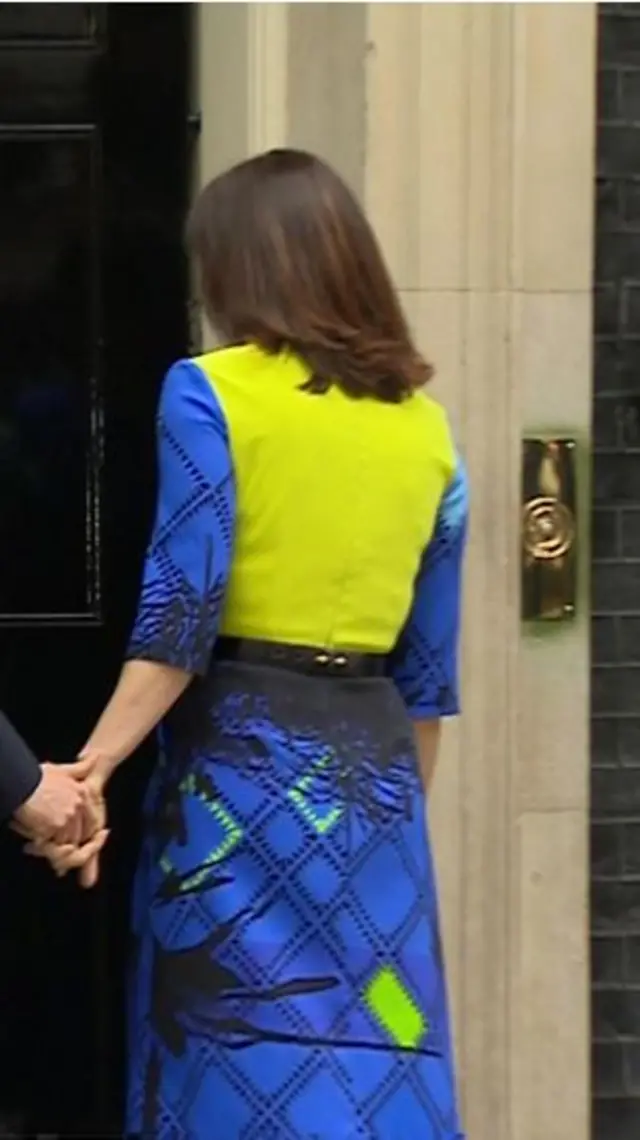
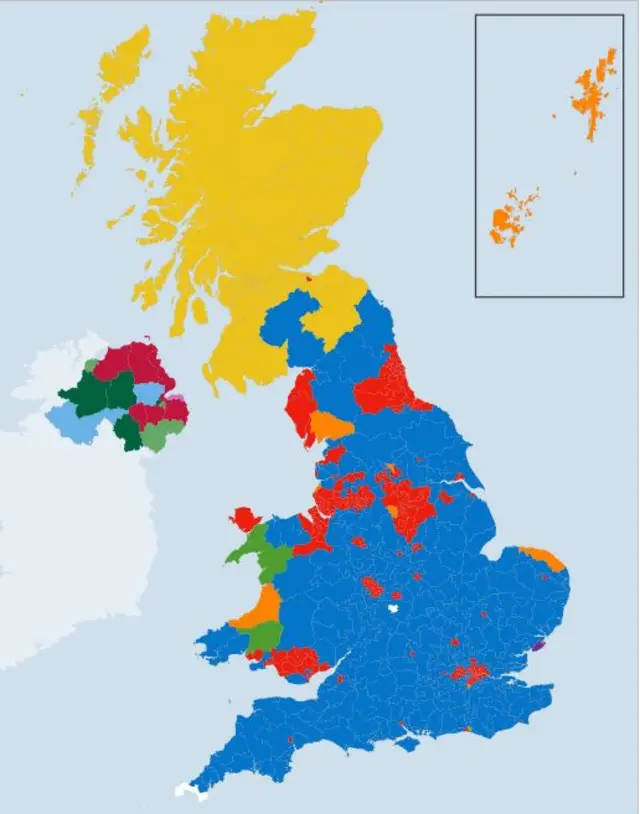
James Bray, Newsnight producer
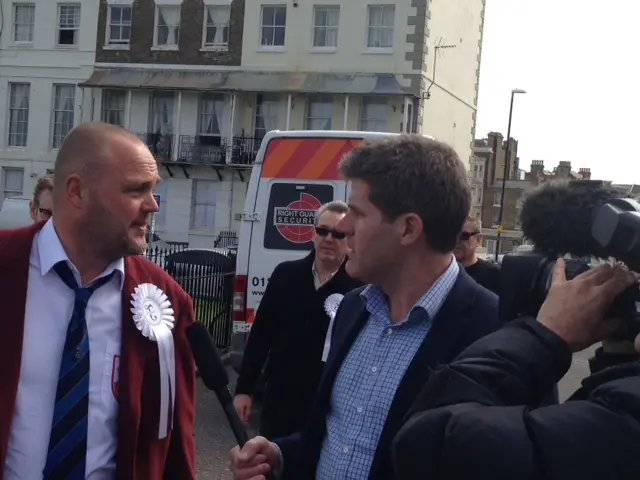
Newsnight's David Grossman talking to Al Murray this morning
So now, at last, we know - Nigel Farage did not carry Thanet.
UKIP's performance this election will provoke serious soul-searching.
On the latest figures, a party that picked up 12.6% of the vote nationwide has garnered a single seat, whereas the SNP, with 4.8% have got 56, and the Lib Dems with 7.7% have managed just 8.
When we spoke to Nigel Farage, externalas he emerged from his hotel this morning for the long-overdue count, he was characteristically forthright about the result.
He said that the relative performance of his party and the SNP showed that the system was broken, and that it needs to change. He said the people who have voted UKIP would be angry that they were not going to be represented in Parliament, despite turning out in their millions; he even seemed to betray a bit of that anger himself.
What happens to Farage now is still unclear.
Questioned this morning on whether he would stay on in spite of his promise, he told us - slightly less directly - that he was a man who hadn't broken his word yet.
The full answer to that, and what his party's result means for the future of the electoral system are just two more of the legion of fascinating questions thrown up by this astonishing night.
Probably not
 Chris Cook
Chris Cook
Newsnight Policy Editor
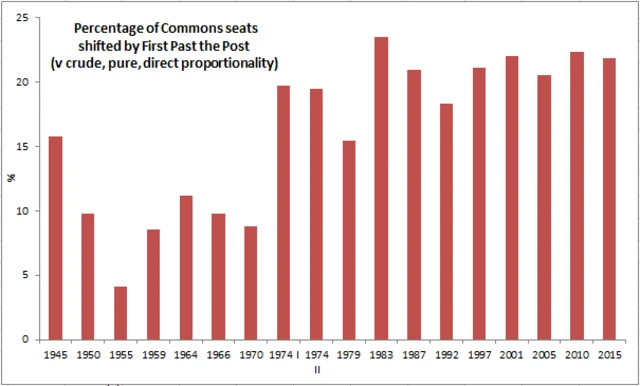
This graph shows a very simple idea. It is, in effect, the proportion of the House of Commons seats that would be allocated differently were we to have the purest of pure PR systems. This is very crude, but it gives you a sense of the extent to which First Past the Post is influencing our politics.
The 2015 number is based on non-final results, and not all the parties. But it won't change a lot. You can see this result is roughly in line with other recent results on this measure. But there has been one very big change.
This is how FPTP affected the 2010 results by party. You can see how the Lib Dems used to be heaviest losers. Now, it's UKIP. The SNP has swung from being a net loser to a net gainer.
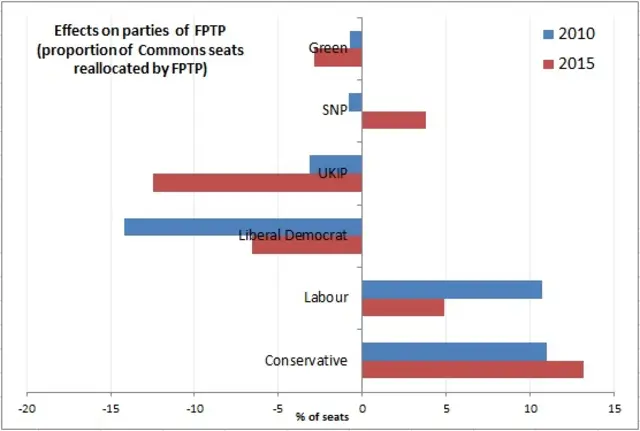
Labour's FPTP advantage has taken a bit of a beating, too. You can think of their performance last night as, in effect, being a redistribution of vote share from where it efficiently won them seats to a distribution where it was less efficient.
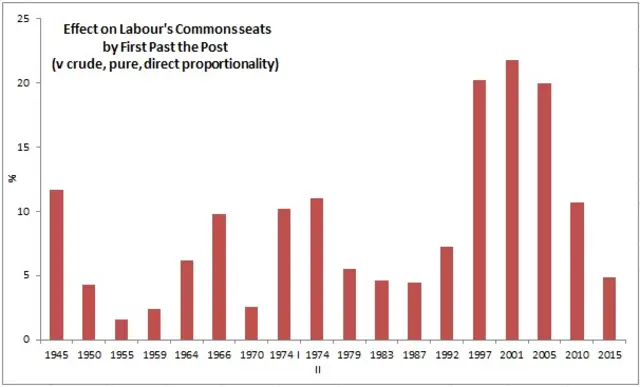
So what does this all mean? The winners and losers from FPTP have changed since 2010, so 'Kippers may put the issue higher up their list than before. But the total size of the FPTP effect isn't unusually high.
Adam Livingstone, Newsnight producer
Here's an at-a-glance of what happened to the Lib Dem seats last night. It shows the seats they held yesterday in order of vulnerability, who won them last night, and who the primary challenger was from 2010. Takeaway: a Lib Dem collapse where the votes went equally to Labour and Conservatives would give more seats to the Conservatives. Chuck in the SNP and here we are (St Ives still to come).
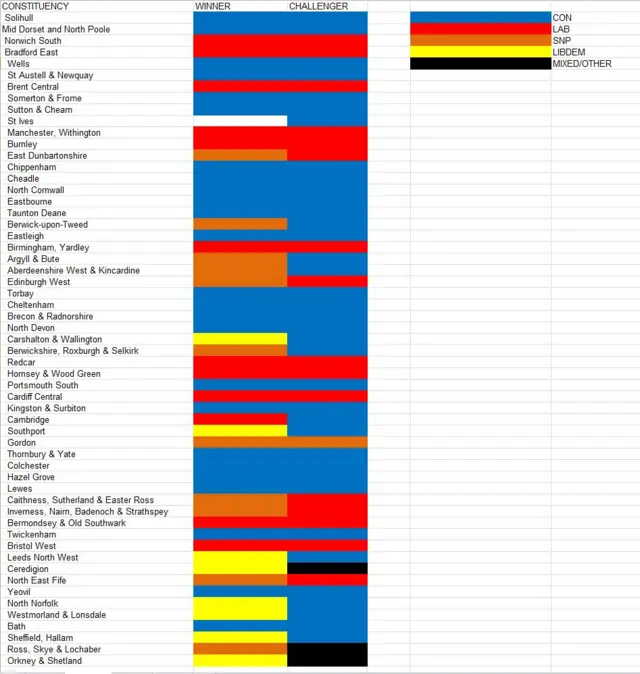
Liberal Democrat seat breakdown Election 2015
Newsnight tweets